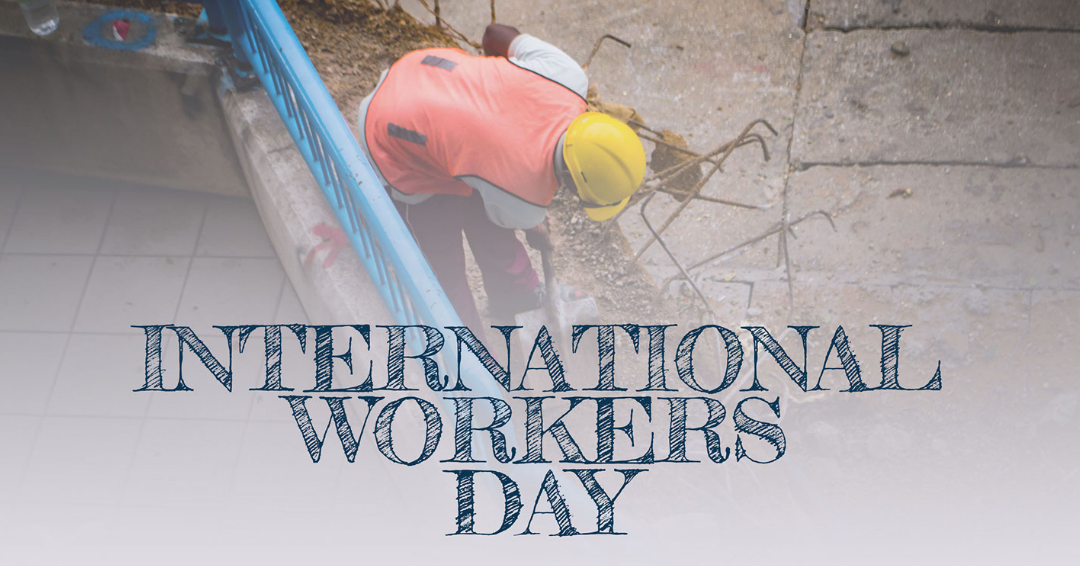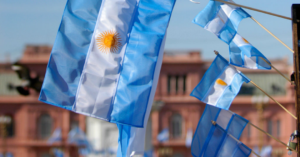
5 important benefits of learning a foreign language as an adult
19/04/2023
World Travellers Make Exceptional Job Candidates (Here’s Why)
15/09/2023International Workers’ Day: A History and Celebration

On 1 May many countries celebrate the International Worker’s Day, also known as Workers’ Day, Labour Day, or May Day. This is a celebration of labourers and the working classes promoted by the international labour movement which occurs every year on the first day of May, or May Day.
The Labour Movement
The labour movement consists of two main wings: trade unionism (UK), or labor unionism (USA), and the political labour movement:
The labour movement developed in response to the depredations of industrial capitalism at about the same time as socialism. However, the labour movement and socialism have two distinct goals. The former aims to protect and strengthen the interests of labour within capitalism, whereas socialism aims to replace the capitalist system in its entirety.
The beginnings of the Labour movement
In the 19th century in Europe, during the Industrial Revolution, there was a decline in agricultural jobs and many people moved to the big cities and to more industrial areas seeking employment. The labour movement began but there was great opposition. The major issues included the right of the workers to organise themselves and the right to an 8-hour working day. Groups forming unions were punished, as it was against the laws of the time.
The International Workingmen’s Association was founded in London in 1864. This was the first attempt at international coordination. Later, in 1871 workers in France rebelled and the Paris Commune was formed. From the mid-nineteenth century onward the labour movement became increasingly globalised.
The movement gained major impetus during the late 19th and early 20th centuries. In 1891, Pope Leo XIII issued the publication, Rerum novarum, also known as “On the Condition of the Working Classes,” advocating a series of reforms including:
Why 1 May?
 Many of us wonder why 1 May was chosen to commemorate these achievements. The date was chosen by a pan-national organization of socialist and communist political parties to commemorate the Haymarket affair, which occurred in Chicago on 4 May 1886. The 1904 Sixth Conference of the Second International, called on “all Social Democratic Party organisations and trade unions of all countries to demonstrate energetically on the First of May for the legal establishment of the eight-hour day, for the class demands of the proletariat, and for universal peace.”
Many of us wonder why 1 May was chosen to commemorate these achievements. The date was chosen by a pan-national organization of socialist and communist political parties to commemorate the Haymarket affair, which occurred in Chicago on 4 May 1886. The 1904 Sixth Conference of the Second International, called on “all Social Democratic Party organisations and trade unions of all countries to demonstrate energetically on the First of May for the legal establishment of the eight-hour day, for the class demands of the proletariat, and for universal peace.”
This is why nowadays the first of May is a national public holiday in many countries across the world, in most cases as Labour Day, International Workers’ Day, or some similar name.
In Europe
In Europe, 1 May was historically associated with rural pagan festivals (May Day), but the original meaning of the day was gradually replaced by the modern association with the labour movement.
In the Soviet Union, leaders embraced the new holiday, believing it would encourage workers in Europe and the United States to unite against capitalism. The day became a significant holiday in the Soviet Union and in the Eastern-bloc countries, with high-profile parades, including one in Moscow’s Red Square presided over by top government and Communist Party functionaries, celebrating the worker and showcasing Soviet military might.
In Germany Labour Day became an official holiday in 1933 after the rise of the Nazi Party. Ironically, Germany abolished free unions the day after establishing the holiday, virtually destroying the German labour movement.
In the UK, International Workers’ Day is celebrated every year on the first Monday of the month. In 2020, however, the bank holiday is moved to Friday 8th May (instead of Monday 4 May) to make it coincide with the celebration of VE Day.
In the United States and Canada
 Although most countries around the world celebrate Labour Day on 1 May, the United States and Canada celebrate it on the first Monday of September.
Although most countries around the world celebrate Labour Day on 1 May, the United States and Canada celebrate it on the first Monday of September.
In 1889 an international federation of socialist groups and trade unions designated 1 May as a day in support of workers, in commemoration of the Haymarket Riot in Chicago (1886). Five years later, U.S. Pres. Grover Cleveland was uneasy with the socialist origins of Workers’ Day. Some states were already celebrating Labor Day on the first of Monday of September, so he signed legislation to make this the official U.S. holiday to honour workers.
Most Americans know little about the International Workers’ Day of May Day. Many think this is a holiday celebrated in state communist countries like Cuba or the former Soviet Union. Most Americans don’t realise that May Day has its origins in their own country, it stemmed from the pre-Christian holiday of Beltane, a celebration of rebirth and fertility, and is as “American” as baseball.
Canada followed the US. In 1894, the government of Prime Minister John Sparrow David Thompson declared the first Monday in September as Canada’s official Labour Day.
However, May Day is marked by unions and leftists, and it is celebrated on 1 May. It is an important day of trade union and community group protest in the province of Quebec, though not a provincial state holiday.
In Argentina
In Argentina, Workers’ Day is an official holiday on 1 May.
It was celebrated in 1890 for the first time, wh en Argentinian unions organised several celebrations in Buenos Aires and other cities, at the same time as the international labour movement celebrated it for the first time. In 1930, president Hipólito Yrigoyen established it as an official holiday. Yrigoyen belonged to the Unión Cívica Radical (UCR –“Radical Civic Union”), a centrist social-liberal political party in Argentina.
en Argentinian unions organised several celebrations in Buenos Aires and other cities, at the same time as the international labour movement celebrated it for the first time. In 1930, president Hipólito Yrigoyen established it as an official holiday. Yrigoyen belonged to the Unión Cívica Radical (UCR –“Radical Civic Union”), a centrist social-liberal political party in Argentina.
The day became particularly significant during the worker-oriented government of Juan Domingo Perón (1946–55). He permitted and endorsed national recognition of the holiday during his tenure in office.
MLH on International Worker's Day
Today, we are celebrating the contributions of workers from all over the world. Whether you are a doctor, a teacher, a construction worker, or anything in between, your efforts are what keep our societies running smoothly.
On this special day, we take a moment to recognise the struggles and achievements of workers everywhere. We remember the protests, strikes, and demonstrations that have led to better working conditions and fair treatment for all.
It is important to remember that not everyone has the same opportunities and benefits as we do. Many workers still face discrimination, exploitation, and unsafe working conditions. Thus, we must renew our efforts to ensure the protection of workers' rights and promote social justice.
At My Language Hub, we believe in the power of language to bring people together and promote understanding. That is why we are dedicated to providing language services that help workers from all over the world communicate and succeed.
We invite you to join us in our commitment to supporting workers worldwide. If you require any language services or support, please do not hesitate to contact us. Our team of professionals is always ready to assist you in achieving your goals.

